You can do damage to fillings, crowns and even your teeth themselves
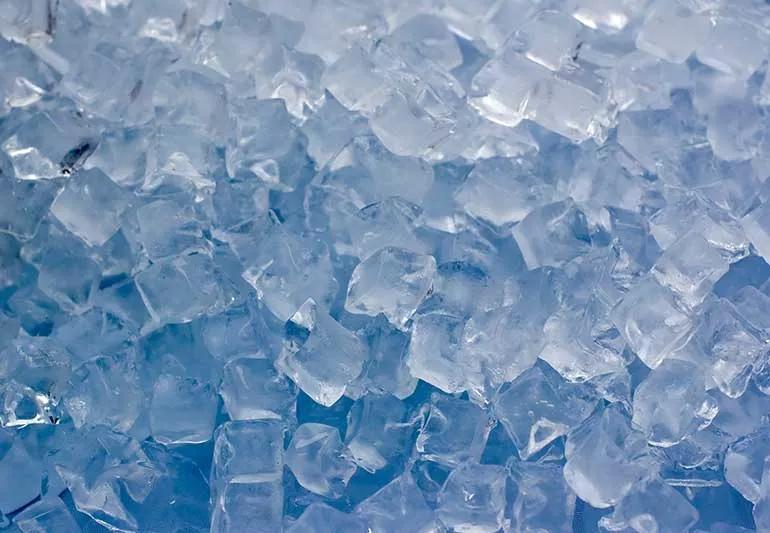
Out of anxiety or nerves, you’ve probably absentmindedly started chewing on something you weren’t supposed to. That category might include ice.
Advertisement
Cleveland Clinic is a non-profit academic medical center. Advertising on our site helps support our mission. We do not endorse non-Cleveland Clinic products or services. Policy
And you might wonder why you’re drawn to chomping on something as cold as ice. According to dentist Karyn Kahn, DDS, it could be because it’s soothing.
“Ice chewing increases the blood flow to the brain and stimulates the parasympathetic nervous system, which gives a calming effect,” she explains. “That perpetuates the habit. People feel better, so they chew ice.”
And while chronic ice chewing isn’t uncommon — it even has a name: pagophagia — it definitely isn’t a habit you want to pick up. Dr. Kahn explains why chewing ice is bad for your teeth and shares some tips on how to stop.
In short — there are many downsides. “Chronic ice chewing could be very detrimental to your health and your teeth,” says Dr. Kahn.
For starters, you don’t have to chew ice all the time for it to be an issue. Even just chewing ice a little too forcefully once or twice could lead to issues. “It doesn’t take much biting force to fracture a tooth, especially if the tooth has tiny cracks already,” she says. “Even just eating a piece of bread can fracture a tooth if there are already cracks.”
Here are some other potential negative side effects of ice chewing:
Fillings and crowns can chip or break easily, Dr. Kahn notes, especially if you’re biting on a tooth that’s already somewhat compromised.
Advertisement
“White crowns are made from a type of porcelain,” she continues. “Some porcelains are stronger than others, but they can still crack or break.”
These breaks can occur if you’re putting stress on your teeth in other ways. For example, it isn’t uncommon to have porcelain fractures if you’re an ice chewer who also grinds and clenches your teeth.
Other tooth restorations in addition to these fillings can also be damaged if you bite down too hard in one area.
Ice chewing is a particularly bad habit for people wearing orthodontic braces. “This can pull or break the bonded brackets,” Dr. Kahn says.
Chewing ice requires you to use excessive jaw muscle force, which can cause muscle pain.
Enamel, or the outer layer of your tooth, is the hardest substance in your body. But that doesn’t mean it’s indestructible. “Think of teeth like a china plate,” says Dr. Kahn. “The enamel is very susceptible to fracture. Chewing ice can result in fracture of teeth that may not be able to be restored.”
She reiterates that enamel damage also depends on how much force you’re putting on your teeth. “If you’re grinding and clenching your teeth, and then you put ice chewing on top of that — it’s a lot of force on the teeth.”
Chewing ice can also do more than just damage your chompers. “If you’re biting or chewing ice on a daily basis — or even frequently — you can split or fracture a tooth,” Dr. Kahn warns. “Sometimes, it only takes a soft food to get tooth-to-tooth contact and break the tooth.”
Teeth can develop what are called craze lines. These are microscopic fracture lines within your tooth enamel that often can’t be picked up on an X-ray.
“Sometimes, you can see them by shining a light on a tooth,” she says. “But these craze lines begin very small, just like a crack in a car windshield, and can grow and grow, and get deeper and wider.
“Those craze lines can go so deep that a fractured tooth is non-restorable. You can even lose your tooth if it fractures.”
Healthcare providers aren’t sure why, but, yes, wanting to chew ice all the time could be a sign of an iron deficiency, otherwise known as anemia.
“Whenever I see someone who is a chronic ice chewer, I refer them back to their primary care physician to have bloodwork done, especially to check iron levels,” says Dr. Kahn. “The ice chewing could indicate iron deficiency.”
In general, if you’re chewing ice every single day, Dr. Kahn says it’s a sign something is likely going on — whether that points to an iron deficiency, stress or anxiety.
Advertisement
“If you’re chewing on ice one time, it’s not compulsive behavior,” she continues. “But chronic chewing can indicate some emotional concerns.”
For some people who chew ice, the cold sensation is what’s soothing. So, instead of chewing ice, just let it melt in your mouth or blend crushed ice into slushies.
But Dr. Kahn suggests exercising caution when replacing ice chewing with another kind of chewing activity. “If you’re chewing gum, it’s soft, but it uses a lot of muscle force,” she explains. “And if the teeth are susceptible to fracture, you can fracture it, too.”
Your primary care physician might also recommend cognitive behavioral therapy. This is commonly used to address other habits you want to break.
“Ice chewing is supposed to provide a certain amount of calming effect, and so that’s why it’s perpetuated,” says Dr. Kahn. “Some people feel better after doing it. But sometimes, stress and obsessive-compulsive behavior contribute to ice chewing. In cases like this, some cognitive behavioral therapies might be helpful.”
If you’re afraid you might have done damage to any restorations, fillings, porcelain crowns or even your tooth, call your dentist. Having X-rays and a clinical exam can reveal what’s going on — and offer relief.
Advertisement
“If you begin to get tooth pain, one or two teeth hurting, they could have split,” says Dr. Kahn. “You could have lost a filling. You could have chipped a tooth. You could have damaged the little membrane around the tooth. A dental consult can determine the cause and extent of any damage.”
Advertisement
Learn more about our editorial process.
Advertisement

Start weaning your toddler off daytime pacifier use by 12 months old to help prevent dental issues and speech delays

At-home products like whitening toothpaste, rinses and strips can bring bright results
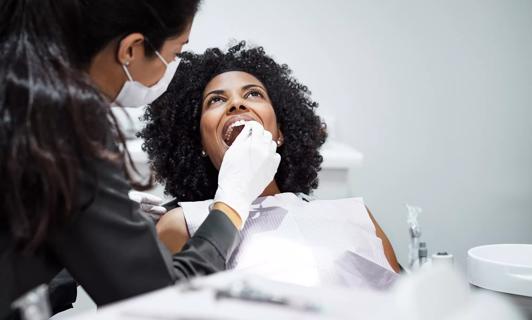
Keep the nail file out of your mouth and leave any tooth shaving up to your dentist
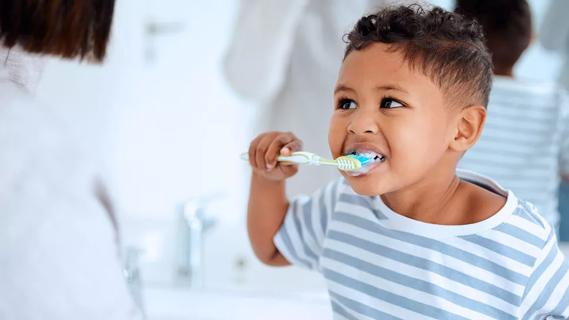
Help and encourage them to brush and floss regularly, limit sugary foods and get routine dental checkups
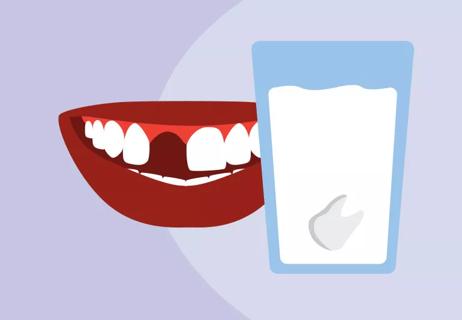
Act quickly to increase the chances that your tooth can be saved
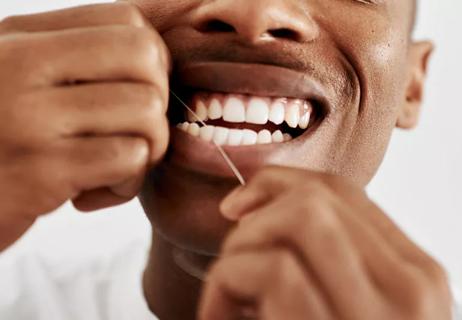
No, oil pulling and vitamin D won’t fill or fix a cavity

Cavities, grinding or even a sinus infection could be behind your tooth pain
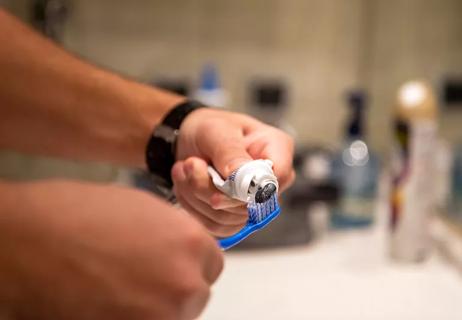
How your teeth and gums can alert dentists to other health problems

Wearing a scarf, adjusting your outdoor activities and following your asthma treatment plan can help limit breathing problems

Your diet in the weeks, days and hours ahead of your race can power you to the finish line

When someone guilt trips you, they’re using emotionally manipulative behavior to try to get you to act a certain way